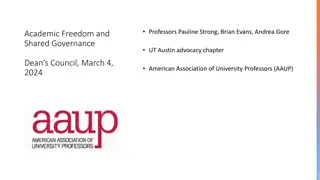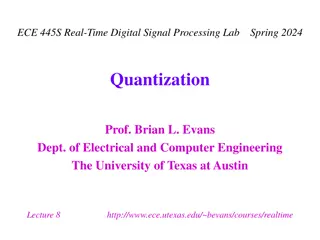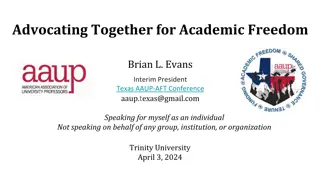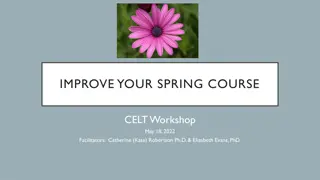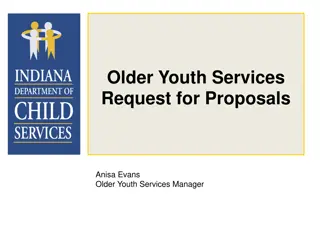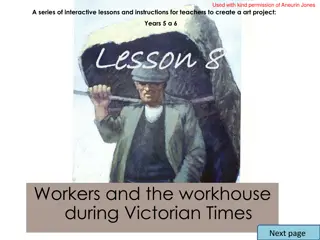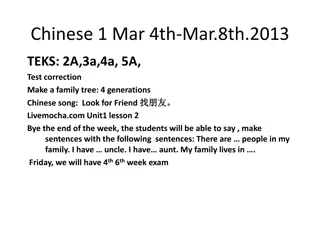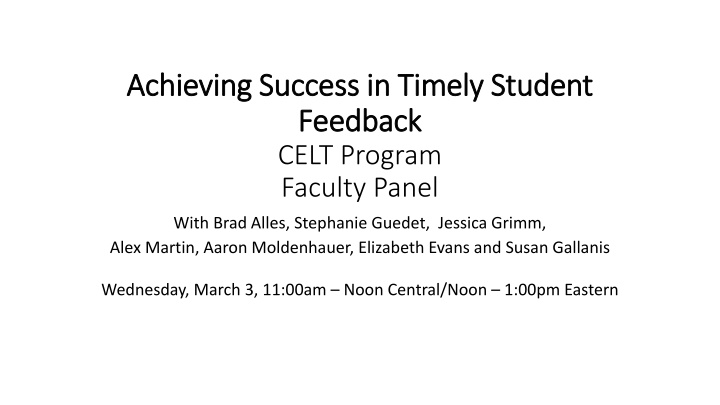
Effective Feedback Strategies for Student Success
Discover the importance of timely and constructive feedback in the learning process. Learn about the principles of good practice, qualities of effective feedback, and how to differentiate between formative and summative feedback. Enhance your feedback skills to support student growth and development.
Download Presentation

Please find below an Image/Link to download the presentation.
The content on the website is provided AS IS for your information and personal use only. It may not be sold, licensed, or shared on other websites without obtaining consent from the author. If you encounter any issues during the download, it is possible that the publisher has removed the file from their server.
You are allowed to download the files provided on this website for personal or commercial use, subject to the condition that they are used lawfully. All files are the property of their respective owners.
The content on the website is provided AS IS for your information and personal use only. It may not be sold, licensed, or shared on other websites without obtaining consent from the author.
E N D
Presentation Transcript
Achieving Success in Timely Student Achieving Success in Timely Student Feedback Feedback CELT Program Faculty Panel With Brad Alles, Stephanie Guedet, Jessica Grimm, Alex Martin, Aaron Moldenhauer, Elizabeth Evans and Susan Gallanis Wednesday, March 3, 11:00am Noon Central/Noon 1:00pm Eastern
Feedback is vital to the learning process Feedback is vital to the learning process Instructor to Learner Feedback is the focus Formal and informal Written and oral feedback Formative (for learning and improvement Summative (for evaluation and learning) Occurs in discussions, classroom activities, on assignments Occurs in mentoring, career encouragement and personal support Our WHY Students need feedback to move forward on further assignments Faculty are responsible for grading student work Students give us feedback on this in student ratings
One of the Nine Principles of Good Practice One of the Nine Principles of Good Practice 4. Give Prompt Feedback Knowing what you know and don t know focuses learning. Students need appropriate feedback on performance to benefit from courses. In getting started, students need help in assessing existing knowledge and competence. In classes, students need frequent opportunities to perform and receive suggestions for improvement. At various points during college, and at the end, students need chances to reflect on what they have learned, what they still need to know, and how to assess themselves. https://www.cuw.edu/academics/services/faculty-staff- resources/celt/nine-principles.html
Qualities of effective feedback to learners Feedback builds on previous knowledge Feedback asks questions to foster thinking Feedback is frequent Feedback is immediate/prompt Feedback is balanced (both positive and improvement oriented) Feedback is specific (points to what is good and needs work) Feedback is supportive (encouraging, not discouraging) Sharing: Which of these do you find easiest to do? Most difficult? Why?
Feedback isnt just Feedback isn t just Summative/Evaluative Feedback To identify a grade (formal evaluation) of an assignment To explain or justify a grade Formative feedback is
Strategies for effective timely feedback Strategies for effective timely feedback Course Design - looking for opportunities for feedback Learner to learner feedback (Stephanie) Assignment Design Assignment Detail and Rubrics Brad using rubrics Using Time Well Using formative feedback to foster learning Providing feedback that student is able to digest (try audio) Brad sets time on the calendar each week for feedback Brad I use rubrics, saved comments (that can be tweaked), and scheduled grading time in my week to provide timely feedback. Some tools for feedback: Blackboard Assignments: Audio feedback and Library of feedback statements
Goals for Instructor to Learner Feedback: Goals for Instructor to Learner Feedback: What are we hoping feedback will do? What are we hoping feedback will do? Goals Benefits To motivate, encourage Builds a relationship with learners To appreciate effort or improvement Demonstrate appreciation To build self-regulation skills So students can self-assess and self-correct To check for understanding (formative) So Instructor can modify instruction as needed To foster learning Organization of Content and Scaffolding Follow-up on what has been built and what is coming
Strategies for Instructor to Learner Feedback Strategies for Instructor to Learner Feedback Formative/Improvement/Learning Feedback Clarify expectations and standards for the learner [design of assignments, rubrics, syllabus/course content] Recommendations for improvement at early stages of work [course design using drafts, outlines, bibliography, stages of a major assignment] Suggestions for improvement on later assignments in this course [more feedback in early assignments] Corrective: To identify errors that need correction (for resubmission) Learning-focused Refer students to resources which support learning To ask clarifying questions to help the student discover their knowledge (writing to learn) Suggestions for improvement in future courses Summative/Evaluative Feedback To identify a grade (formal evaluation) of an assignment To explain or justify a grade
Formative Instructor to Learner Feedback Formative Instructor to Learner Feedback Formative Feedback Goals Examples Establish and clarify expectations and standards for the learner Assignment instructions, n-class explanations Rubrics Expectations to incorporate formative feedback Suggestions for improvement at early stages of work in progress Course Design using drafts, outlines, bibliography as stages of a major assignment Suggestions for improvement to apply to later assignments in this course Give more detailed feedback on early assignments in this course, and expect better work later Corrective: To identify errors that need correction (for resubmission) Talking to student about plagiarism and asking for re-write Learning-focused Tackling course and discipline related learning objectives Refer students to resources which support learning Ask clarifying questions to help the student discover their knowledge (writing to learn) Suggestions for improvement in future courses We hope summative feedback has this function



